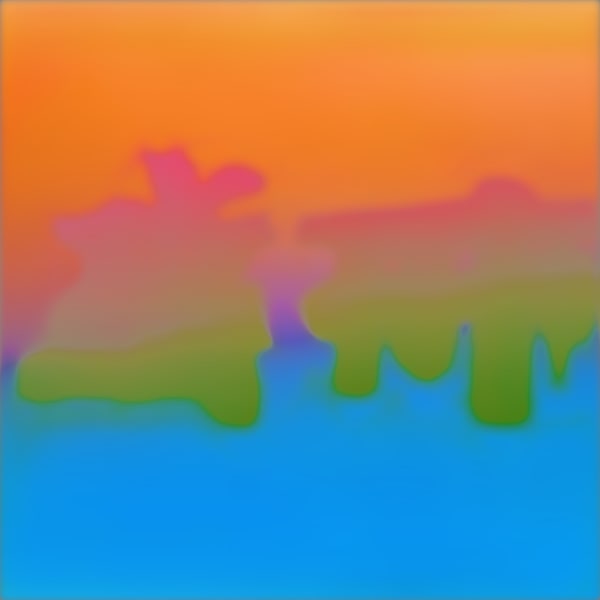Marking the tenth anniversary of the MullenLowe NOVA Awards, this year's winning work offers visions of a more eco-centred and socially just future.
The award-winning projects span disciplines and perspective, from biological alternatives to kiln firing and cleaning kits for reusable menstrual pads to living costumes and masks that reveal your online emotions. The selection was made by a jury including Head of Design and Presentation at the London Transport Museum Sau-Fun Mo, architect Shahira Fahmy, Founding Editor of Creative Boom Katy Cowan, artist and previous NOVA winner Sandra Poulson and Jose Miguel Sokoloff, Global President, MullenLowe Group Creative Council.
"As every year, the winners have been chosen through long discussions on the jury. Every project is looked at from all angles. It’s an enriching conversation, particularly because we focus on the positive – why we like it, why we think it's so good… And finally, the work that gets the award is the work that we all defended and, ultimately, we all fell in love with.”
Jose Miguel Sokoloff,
Global President, MullenLowe Group Creative Council
Alongside the first prize, runners up, the Unilever #Unstereotype Award and the Creative Boom Conscious Award, which are decided by the jury, the YourNOVA People's Choice Award is voted for by the public.
-
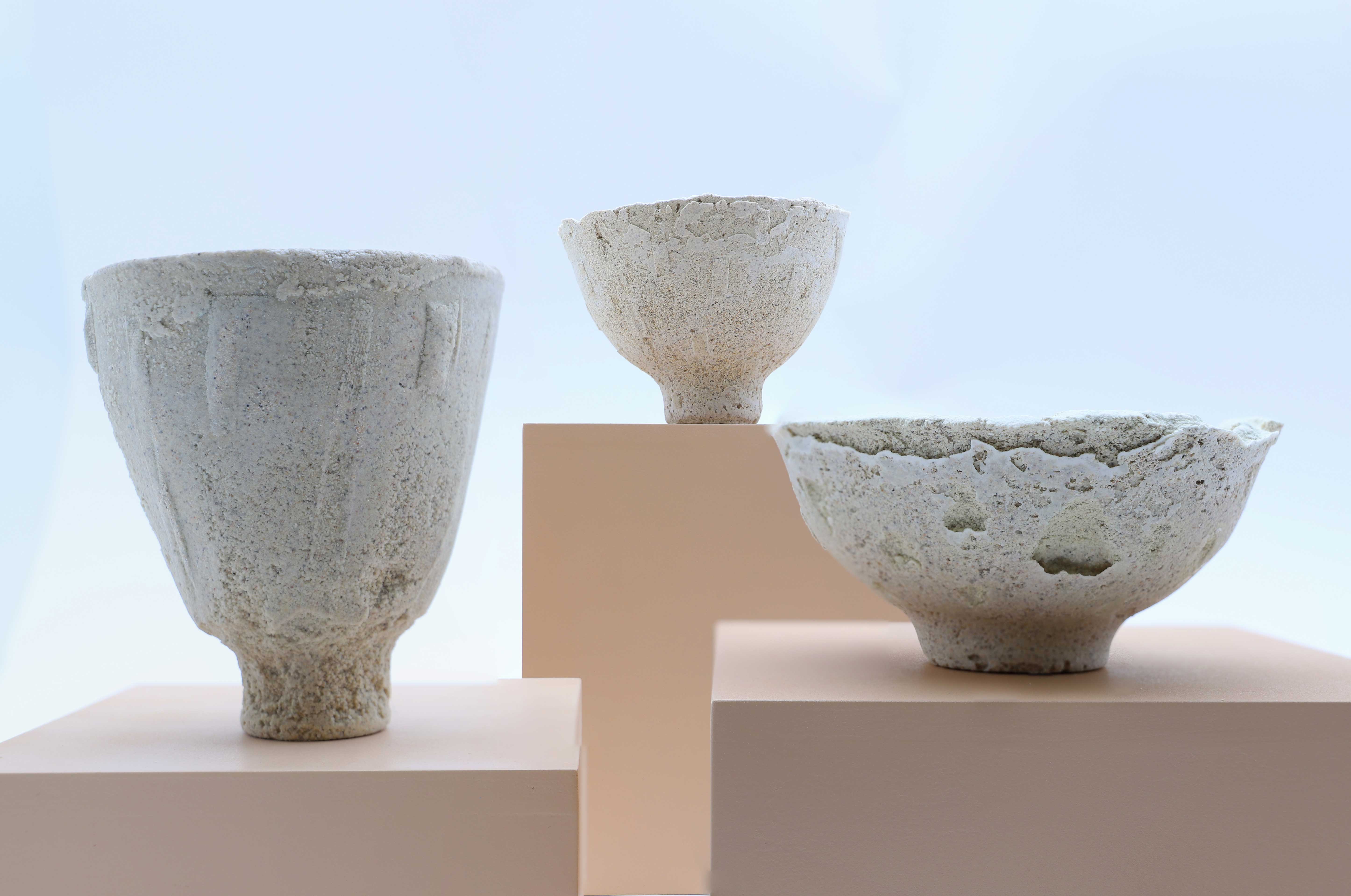
Nikoleta Chrysikou, MA Material Futures
-
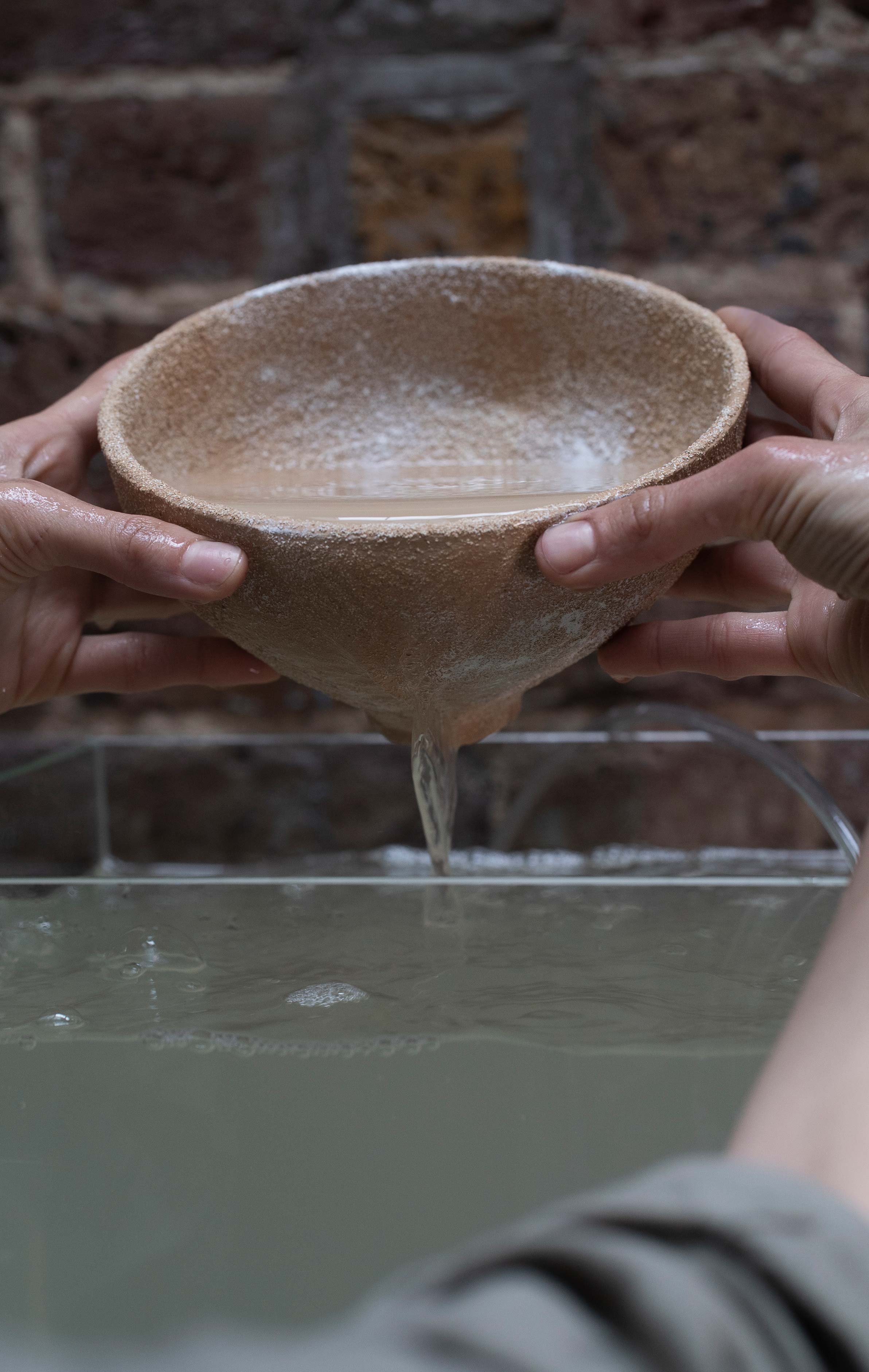
Nikoleta Chrysikou, MA Material Futures
-
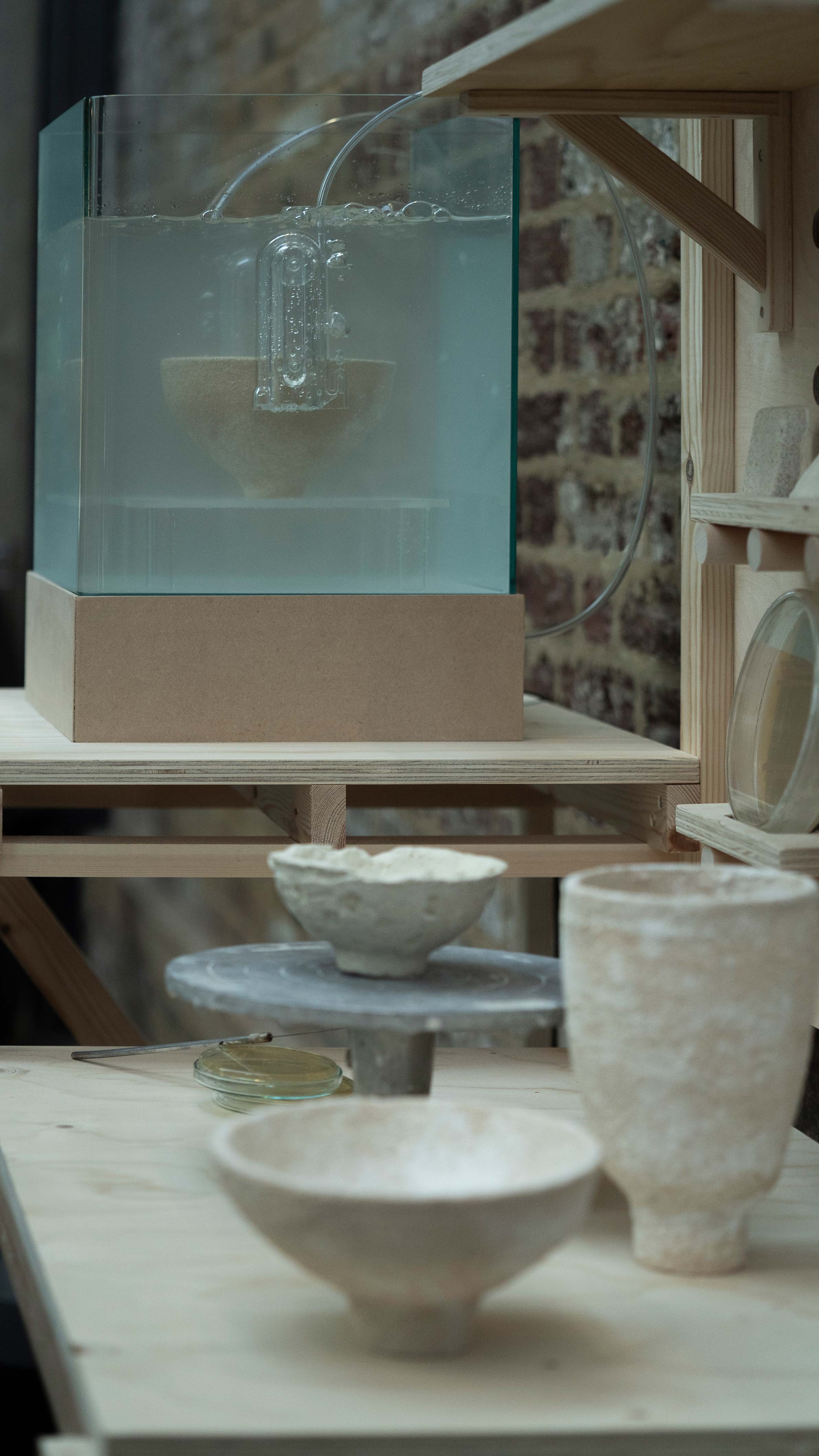
Nikoleta Chrysikou, MA Material Futures
NOVA Award Winner
Nikoleta Chrysikou, MA Material Futures
BacTerra
"Pottery is a universal craft that has endured for thousands of years. But while people have mastered this craft and have optimised the material, its production method – energy-consuming and carbon-heavy kiln firing – has remained relatively unchanged.
But what if we could find alternative ways of creating ceramics; ceramics that do not require kiln firing; ceramics made by living organisms and biological processes? BacTerra proposes the use of bacteria to create alternative ceramics that are self-fired and biologically glazed."

NOVA Runner Up
Lydia Hardcastle, BA Performance: Design and Practice
FEN (Growing Garments)
"This project has taken me on a wonderful journey. It began when successfully growing cress seeds into cotton wool during lockdown. I wondered if I could incorporate this concept within a costume. After months of experimentation, I found the perfect material and environment in which cress can thrive. I created a knitted garment and grew over 25,000 cress seeds into it. It was not only texturally beautiful, but the smell and wet feel of the cress and its roots mesmerised me. This became more than just a visual costume, it was a sensory experience. It began an astonishing journey for me, where I started to understand the importance of nature to our mental health, and people’s in/accessibility to a green space during lockdown.
All my work is inspired by organic materials. There is a huge level of unpredictability when using materials which are alive that will die if not tended too. This project gave me such a sense of purpose during lockdown and positively impacted my mental health.
As a result of this, I created a costume smothered in foraged forest moss – inspired by a garden snail. Can I go outside yet? is a reflection of my experience when going outside of my house and wanting to hide away from everyone. This then led me on to FEN, a growing piece of living art made from Curveleaf Hypnum moss foraged from within my local countryside."

NOVA Runner Up
Alice Turner, BA Product and Industrial Design
Carnerie
"60% of global biodiversity loss and 15% of all greenhouse gas emissions are a result of meat farming and consumption. Carnerie is a ‘grow your own meat’ device for a decade or two in the future. It is controlled by an app, whereby the user is able to order cell capsules from local farms to grow different types of meat. By inserting the two capsules into the machine, adding water and adjusting the settings, the user can grow various types of meat in one week.
Throughout the whole project, I have been inspired by home brewing devices. Not only is the process of fermentation very similar to that of growing meat, but the localised, experimental nature of beer brewing is very similar.
This conceptual, speculative project is designed to help us visualise what this future scenario could be like and whether it’s a future that we would buy into. By exciting, shocking or even repulsing the viewer, it enables us to question our existing meat consumption habits and whether they need to change."

YourNOVA Award
Jann Choy, BA Graphic Communication Design
Liǎn
"Liǎn (脸) is an experimental mask that explores the relationship between our online personas and offline self. The concept and design are heavily inspired by Chinese face-changing opera art and online avatars. It merges my cultural tradition with modern technology.
Liǎn responds to your real-time online emotions through code and soft robotics. Sentiment analysis, a form of machine learning or artificial intelligence, is performed on your online interactions. If you post, like or comment something positive, it will return a positive score, inflating the part of the mask that represents a positive front. Conversely, if it is negative, it will inflate the corresponding areas.
Wearing this silicone mask displays the dichotomy between one’s real versus online facial expressions. The inflation changes the structure of the mask, creating an avant-garde form in line with the theatrical nature of online personalities. Liǎn does not act as a criticism, rather, an inquiry of our online manifestations."

Unilever #Unstereotype Award
Cheuk Laam Wong, BA Product and Industrial Design
Looop Can
Looop Can is an NGO project to provide a cleaning kit for washing reusable menstruation pads, reducing period poverty for refugees in water-scarcity regions or asylum seekers in financial difficulties.

Creative Boom Conscious Award
Francesca Daloiso, MA Industrial Design
Ulïètu
"Ulïètu is a collection of surface panels reflecting the traumatic effect of Xylella Fastidiosa, one of the most dangerous plant-pathogenic bacteria in the world. Xylella bacteria started spreading in Apulia, Italy, in 2013 caused by the importation of an infected Costa Rican coffee. Since then, half of the Apulian olive trees have died of Xylella, precisely 21 million trees. Subsequently, olive trees in Southern France, Corsica, Portugal and Southern Spain have been infected too.
To prevent the spread of the bacteria, the infected trees must be immediately eradicated, passed through a chipping process and burned. This project presents intelligent and sustainable usage of these wood chips, avoiding combustion and taking advantage of the material residual properties in large-scale contexts preserving what remains of Apulian olive trees, giving them a second chance of life. Ulïètu represents a traumatic loss but also a rebirth."
-
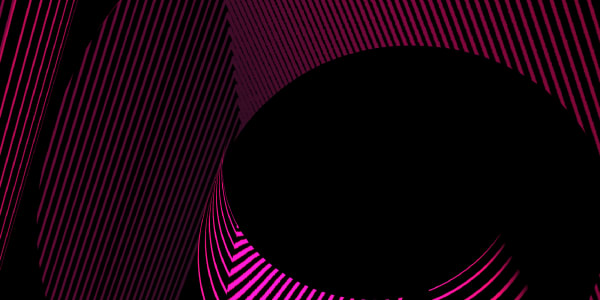
NOVA Award 2021


